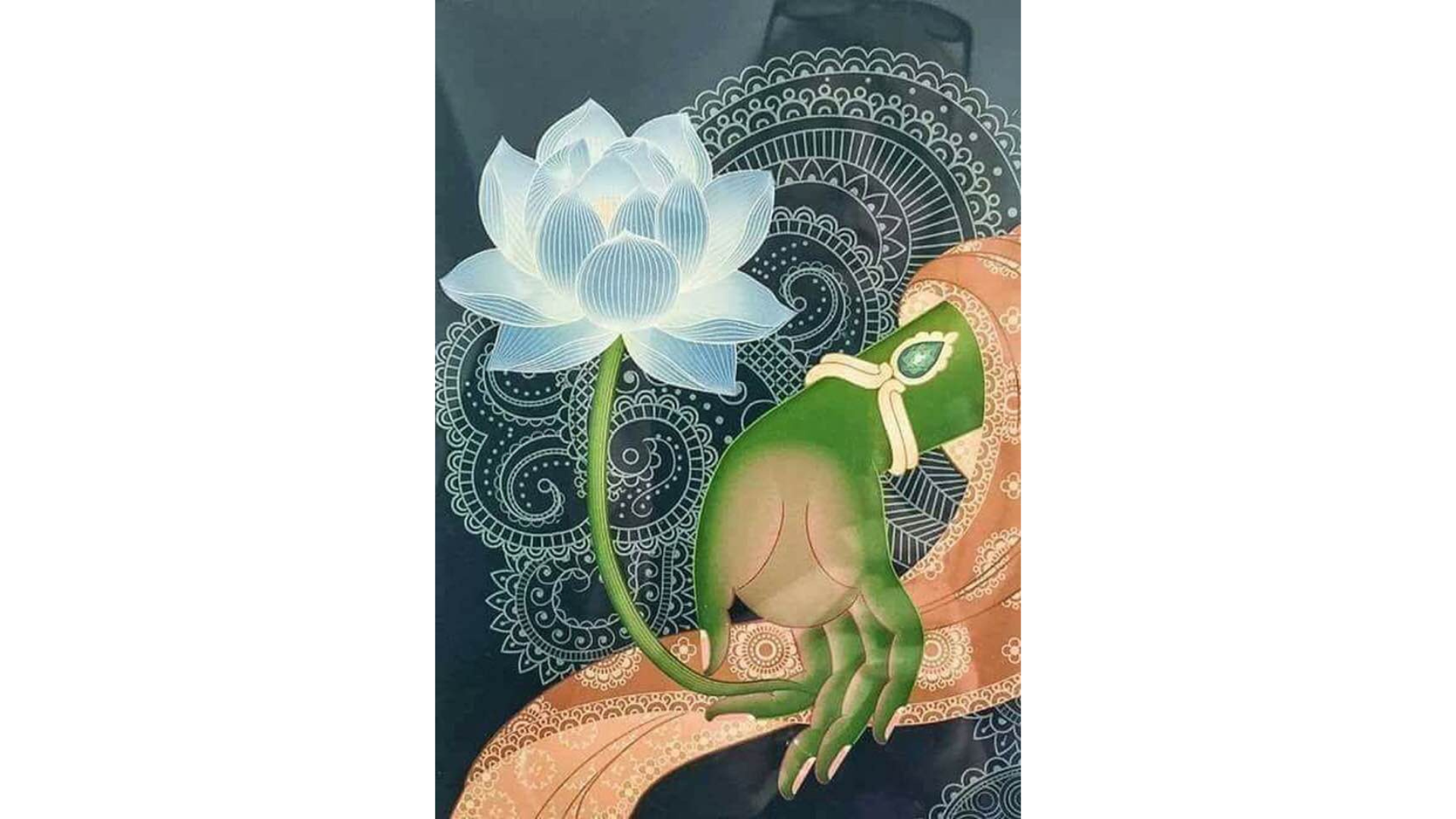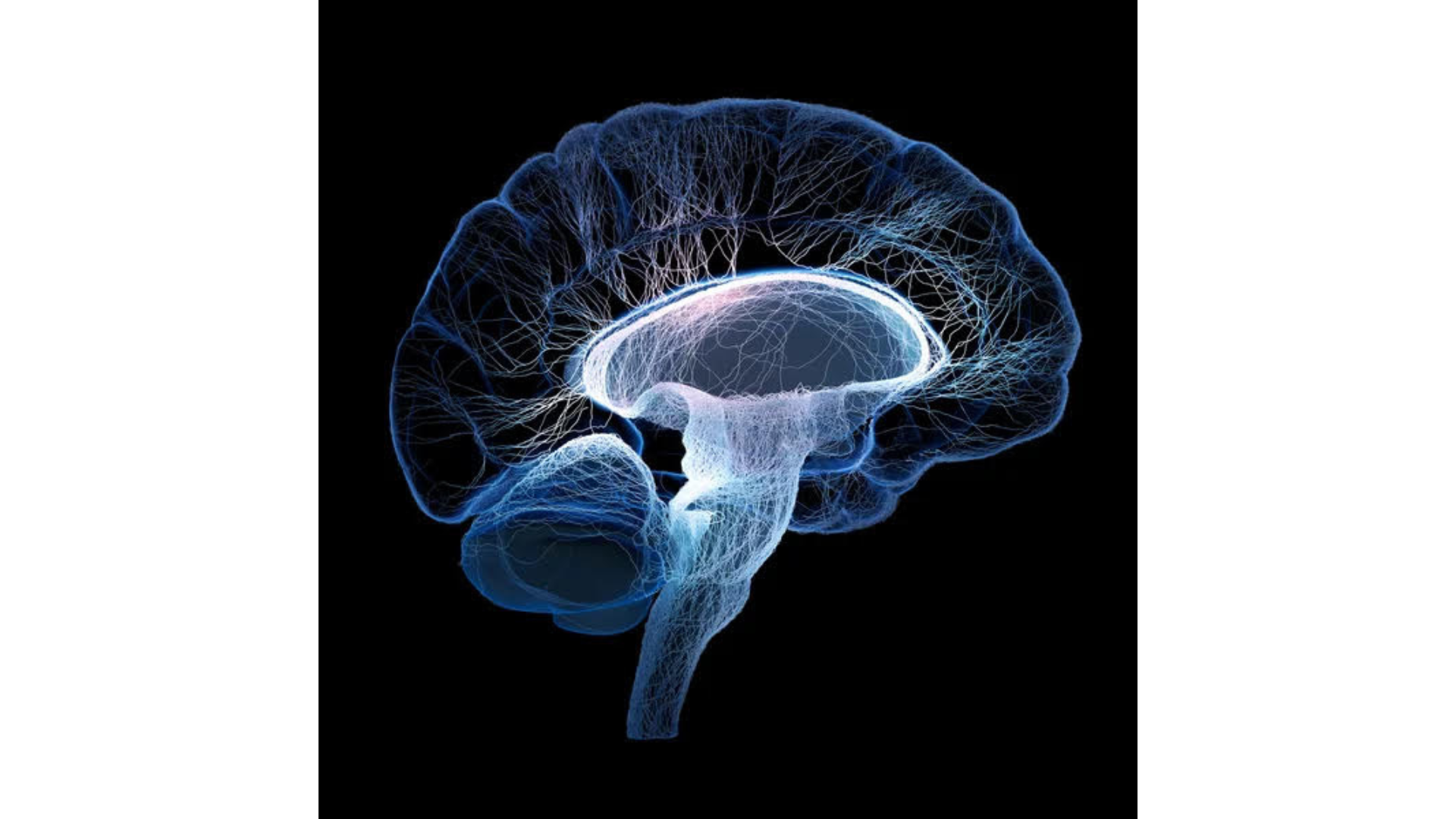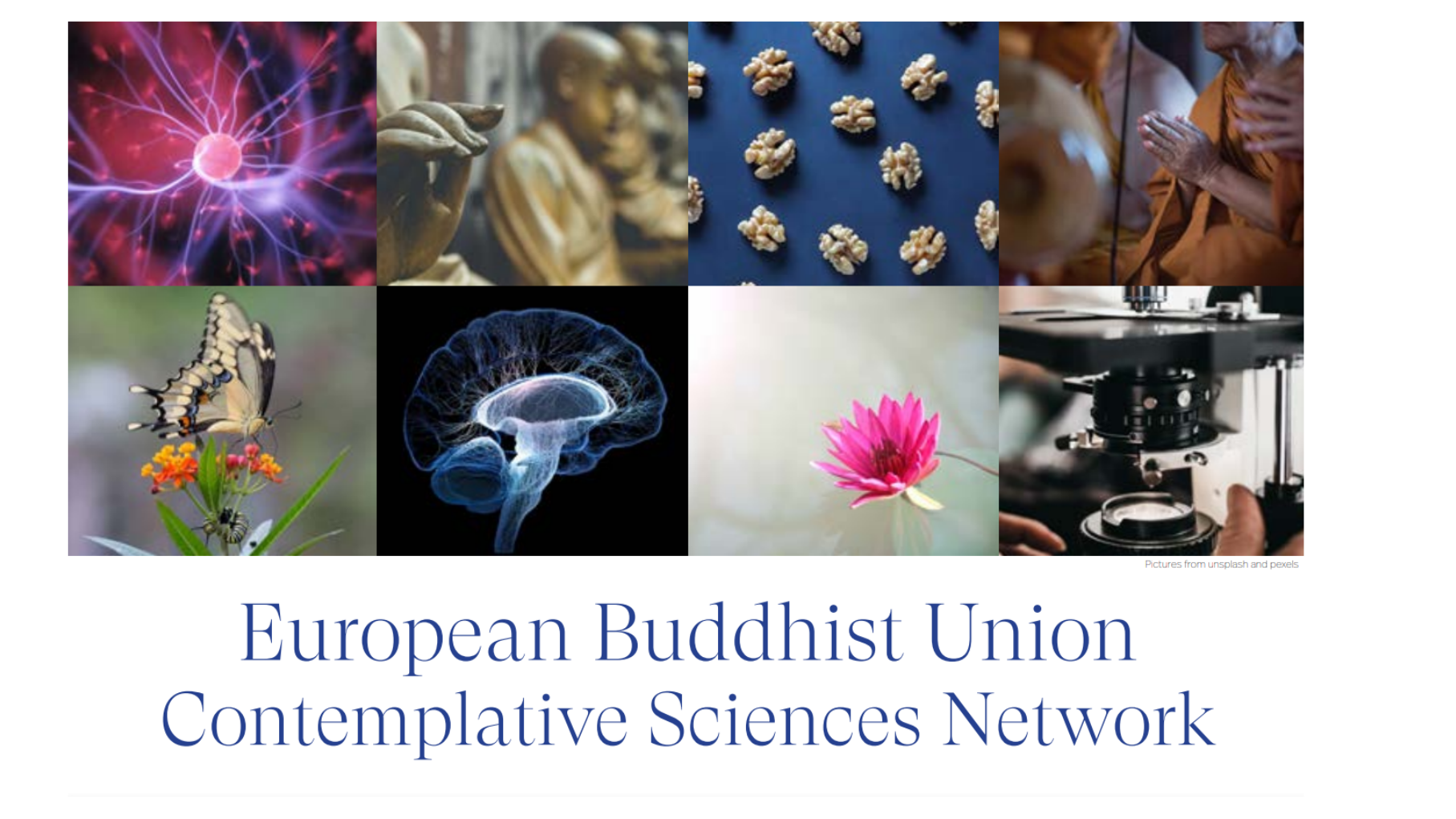“We maintain that the rediscovery of Asian philosophies
and in particular the Buddhist tradition is a second Renaissance
in the cultural history of the West,
and that its impact will be as important
as that of the rediscovery of Greek thought during the European Renaissance”
(Fancisco Varela in his book "Embodied Mind")
Premise
For centuries, Buddhism has preserved treasures of knowledge regarding the fundamental issues of human existence. The Buddha's teachings offer a non-dogmatic method to come to thoroughly know ourselves and the world around us.
This methodology is based on the principle that every human being has unlimited potential for inner development, which can be fully attained through a process of refined philosophical study combined with specific techniques of meditation and based on a lifestyle rooted in care and respect for nature, self and others.
An extensive understanding of the impermanent character of all phenomena and their fundamental interdependence establishes and fosters a kind of secular ethics that holds “Ahimsa”, or the non-harming of any living being, as a founding principle.
According to this vision, it is possible to approach and understand the transdisciplinary teachings of the Buddha in a variety of different ways: as a religion, a spirituality, or as a transformative humanistic philosophy and an embodied science of the mind.
In particular, the philosophical and scientific aspects of Buddhist teachings are those triggering the possibility of a meaningful dialogue with the manifold areas of knowledge developed in the West. In fact, what unites science and Buddhism is the research methodology, that is the emphasis on experience, rather than on a blind belief in preconceived dogmas.
To face the great challenge of the XXI century, we need the emergence of a universal humanism in a spirit of unity in diversity. We believe that the mutual encounter of western science and humanism with Buddhism knowledge and ethics is an important contribution to the future of Europe as a leading place of peace and harmony in the world.
Mission
CSN mission is not to build a new institution or to compete with existing organizations, but on the contrary, it aims to participate in catalyzing and amplify what already exists.
The purpose of CSN is to contribute to the cooperation between the different organizations, academic institutions, researchers, and teachers in order to facilitate the recognition of positive transformative effects of contemplative sciences and practices. Hence, we envision three main area of actions:
- Facilitating scientific programs and partnerships including academic and Buddhist researchers.
- Promoting various education programs and eventually a post-graduate diploma in Contemplative Sciences accredited both by Buddhist and academic institutions.
- Facilitating the communication of Contemplative sciences and practices to the general public.
Membership
Members of the CSN contribute to the greater integration of contemplative sciences throughout the society, and they share openly with each other their respective resources, knowledge, techniques, understanding, and, above all, their awakened heart for the common good.
Members of the CSN can be:
- Members of Buddhist groups who are part of EBU.
- Leading Buddhist teachers and experts coming from academic (from different disciplines) and contemplative (from different Buddhist traditions) circles; these can be involved in the Advisory Board.
- Representatives of organizations that pursue similar purposes to those of the CSN.
Partnerships
The CSN aims to collaborate with all academic and non-academic entities that share their vision and approach to promote opportunities for dialogue between Buddhist science of the mind and the various areas of Western science and philosophy.
Organization
The CSN is coordinated by a Steering Committee, approved by the EBU, supported by a secretary. It also involves an Advisory Board of contemplative and academic experts. Advisory Board members may be invited to some Steering Committee meetings depending on the circumstances and demands.
CSN meetings may include, with the Steering Committee, Advisory Board members and, occasionally, other invited participants from Dharma centers and academy. General decision making within the CSN is made by the Steering Committee, also based on exchanges and discussions with Advisory Board members, and in agreement with the EBU Board. More specific decisions, such as in the organization of events, might be taken by dedicated/local committees approved by the Steering Committee, in agreement with the CSN Steering Committee itself and the EBU Board.

Initial team and advisors
Steering Committee members
Ron Eichhorn (Buddhist Name: Mio Sop): Former President of EBU, Ron is a professional film director and a Buddhist practitioner for over 30 years. He was elected as President of the European Buddhist Union in 2017, and re-elected in 2020. He is a Head Disciple of the Yun Hwa Denomination of World Social Buddhism and the Abbot of its Buddhist temple in Berlin.
Ron loves his work and appreciates the opportunity to spread
the Dharma within civil society. He also likes sailing, cooking with and for friends and working in his vineyard.
Contact: roneichhorn@europeanbuddhism.org
Frédéric La Combe (L. Lhündroup): Dharma instructor and mindfulness facilitator, translator, graduate in Chinese, after living several years in China, he went for a three-year retreat in the Tibetan tradition under the guidance of Denys Rinpoche.
He has been working in the service of the Buddha's teachings and the Buddha University’s Shédra and meditation programs for the past twenty years. He has written numerous articles and organized many inter-tradition meetings with a humanist vision of unity in diversity. He is interested in the realization and meeting of the Buddha's wisdom with our lives today, particularly in the fields of deep ecology and others.
Contact: lhundroup@rimay.net
Dr. Antonino Raffone completed a Master in “Psychology” and a Doctorate in “Cognitive Psychology and Science” at Sapienza University of Rome. He is currently Associate Professor at the Department of Psychology of Sapienza University of Rome (Italy), and Visiting Professor and Advisory Faculty at Nalanda University (India). He is also Director of the Interuniversity Center ECONA at Sapienza University of Rome, President of “Consciousness, Mindfulness, Compassion – CMC – International Association”, and Chief Editor of the Specialty Section on “Consciousness Research” of “Frontiers in Psychology”. His internationally recognized research is interdisciplinary, with a particular focus on cognitive neuroscience of consciousness and meditation. Finally, he is a dedicated Soto Zen partitioner.
Contact: antonino.raffone@uniroma1.it

Advisory Board
Dharma teacher members
Denys Rinpoche is the superior of the international RIMAY community and founder of the Buddha University, affiliated with the World Fellowship of Buddhists. He is a spiritual heir of Vajradhara Kalu Rangjung Künchab (1904-1989), one of the great yogis who introduced the dharma to the West in the 20th century.
Vajradhara Kalu Rinpoche designated him as Lama Vajracharya, Master Vajra, holder of the Shangpa Kagyü yogic tradition, one of the main lineages of practice in Tibetan Buddhism. In 1979, Vajradhara Kalu entrusted him with the spiritual direction of what became Shangpa Karma Ling, now Rimay Ling in Savoie, France.
Accomplished practitioner and scholar his main activities consist in the transmission of Mahâmudrâ and Dzogchen contemplative experience and training.
He has led eight consecutive three-year retreats, the ninth of which is currently underway, while at the same time conducting a huge work of translation from Tibetan to make the treasure of the yogic lineage teachings accessible.
In an effort to make the practice of meditation accessible, he developed the Open Mindfulness Training method from traditional instructions in a pedagogy well adapted to contemporary life. This secular approach to mindfulness presents contemplation as a lifelong training and may be considered as a second-generation protocol following the MBSR initiative.
Denys Rinpoche was for many years President of the European Buddhist Union (EBU). He participated in the World Council of Religious Leaders, in "A Soul for Europe" attached to the European Commission's Forward Studies Unit and in the World Economic Forum in Davos. In 2000, he launched a manifesto at the United Nations for unity in diversity and organized important inter-tradition meetings, including the 1997 Meeting gathering representatives of Humanistic, religious and primordial traditions of the five continents with Kundün, the Dalai Lama.
Contact: denys.rinpoche@garudahouse.net
Ven. Dario Doshin Girolami, Arco Zen Center (Italy), San Francisco Zen Center (USA) and CMC (Consciousness, mindfulness compassion) international association founder.
Dario Doshin Girolami, M.Phil., is a Soto-Zen priest and a Dharma Teacher in the lineage of Shunryu Suzuki Roshi. He founded the Centro Zen L’Arco of Rome - Italy, where he teaches regularly. He received Dharma Transmission from Eijun Roshi-Linda Cutts, Central Abbess of San Francisco Zen Center. He started to practice in 1986 and was ordained as a Zen monk by Zenkei Roshi - Blanche Hartman. Doshin attended Zenshinji-Tassajara, Hosshinji-City Center and Soryuji-Green Gulch monasteries in the process of becoming a Zen monk and teacher, and studied under the guidance of Zen masters including Thich Nhat Hanh and Maezumi Roshi.
He also received the Avalokiteshvara initiation from His Holiness the Dalai Lama. Prior to entering the Zen path, he received a Laurea degree in Indian and Eastern Religions and Philosophies under the instruction of Professor Corrado Pensa at Sapienza University of Rome. Former Adjunct Professor of “Zen” at John Cabot University and of “Comparative Religion” at the American University of Rome, he currently holds regular seminars at the Faculty of Psychology at Sapienza University of Rome, and teaches Meditation at Rebibbia Prison - Rome.
Contact: d.girolami@romazen.it
Academic research members
Dr. Elena Antonova is Senior Lecturer in Psychology at Brunel University London, which she joined in June 2019. Prior to that she was a lecturer at the Institute of Psychiatry, Psychology and Neuroscience, King's College London (KCL), where she remains a Visiting Researcher. Elena's research focuses on the effects of long-term mindfulness practice using neuroimaging and psychophysiology methods, with the application to the prevention and management of psychopathologies.
She has been actively involved with the Mind and Life Institute since 2011 and Mind & Life Europe since 2013, and was elected a Mind and Life Research Fellow for her contribution to contemplative science in 2017. Elena has had a personal meditation practice since 1998 and has attended numerous meditation retreats since 2001, mainly studying and practicing Dzogchen approach.
Contact: elena.antonova@brunel.ac.uk
Dr. Marc-Henri Deroche is an Associate Professor at Kyoto University, Japan, where he teaches Buddhist and Tibetan studies. His doctoral dissertation (École Pratique des Hautes Études, Paris, 2011) (forthcoming as Une quête tibétaine de la sagesse: Prajñarasmi et les sources de l’attitude impartiale, Brepols) has shed new lights on the successive revivals of the Nyingma school and the emergenceof the Rimé movement in Tibet. His recent and current research focuses on the faculty of mindfulness in close relationship with the development of wisdom, especially according the tradition of Dzogchen, and has appeared in journals such as Asian Philosophy, Philosophy East and West, Eidos, etc. He is the academic editor of the special issue of Religions, entitled Study, Reflection, and Cultivation: Integrative Paths to Wisdom from Buddhist and Comparative Perspectives. He is a fellow of the Mind and Life Institute (USA) and leads at Kyoto University the interdisciplinary activities of the Mindful Living Research Group.
Contact: deroche.mh@gmail.com
Dr. Antoine Lutz is currently a director of research at the French Medical Research Institute (INSERM) in the Lyon Neuroscience Research Center (CNRL) where he co-leads the Experiential Neuroscience and Mental Training Team (EDUWELL). After a Master degree in engineering and a BA in philosophy at the Sorbonne under the direction of Natalie Depraz, he did his PhD in cognitive neurosciences in Paris, France, with Francisco Varela where he applied for the first time his neurophenomenology program to study the neural correlates of attention and perception. Since 1998, he has studied meditation with various teachers including Mingyur Rinpoche, Tsoknyi Rinpoche, Matthieu Ricard and Joseph Goldstein.
During his postdoctoral work with Richard Davidson, at the University of Madison-Wisconsin, he studied using neuroimaging techniques meditation practices such as mindfulness or compassion meditations in expert meditators and in novices who learnt to meditate using the Mindfulness-Based Stress Reduction program (MBSR). In 2008, Richard Davidson and him were awarded a NIH-NCCAM grant to fund in Madison the first American Center of Excellence on Research dedicated to neurophysiological study of meditation practices. After working for ten years in the US as a research scientist, he joined the Lyon Neuroscience Research Center in France in January 2013. His current research group focuses on the neurophenomenology of mindfulness and compassion meditations and on the impact of these practices on consciousness, attention and emotion regulations, and pain perception as measured by cognitive, affective and social neuroimaging paradigms using EEG, MEG, intra-cortical EEG, and fMRI. This research is currently funded by a European ERC consolidator grant (Brain&Mindfulness, 2014-2021).
He is also currently collaborating to a European research consortium investigating the impacts of meditation practices on ageing and well-being as measured by brain imaging (PET, IRMf, DTI, EEG), biomarkers of ageing, and psycho-affective and cognitive behavioural measures (Meditageing, H2020, 2016-2021, study coordinated by Gaël Chételat, INSERM Caen, https://silversantestudy.fr). He recently started a collaboration investigating the neurocomputational principles of meditation (ANR MindMadeClear, coordinated by Hugues Mounier, CNRS).
Contact: antoine.lutz@inserm.fr
